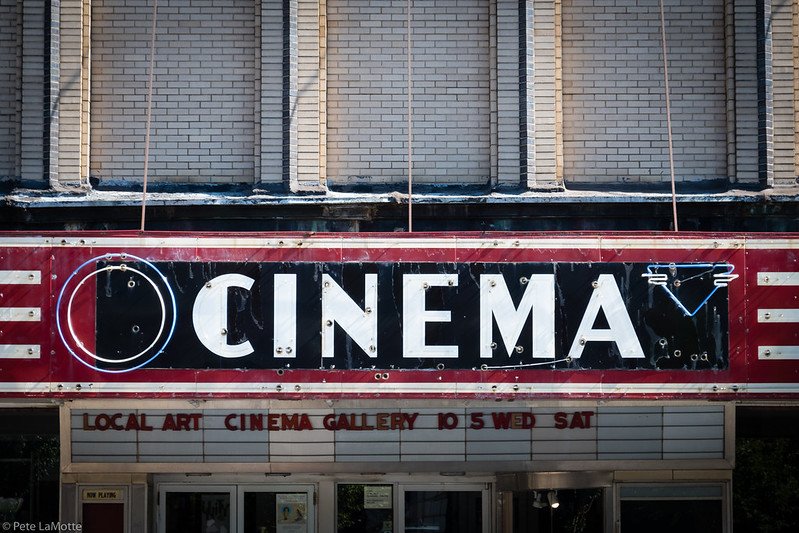Opinion: Is Cinema Dying or Evolving?
By Abbie Thomas, Third Year History
Cinema has captivated society since its inception at the beginning of the twentieth century. The industry has been expanding and evolving for over a century, attracting an audience that blurs societal distinctions. No matter your class, gender, or race; cinema can speak to all people.
It is evident that the past few years have seen massive changes to the cinema, with the pandemic having a huge impact on how and where we watch films. The shift from an evening out at the movies to an evening in on the sofa has placed even more value on streaming sites.
In my opinion, cinema is not dying. I think that it is fair to say that the cinema, as a place where films are shown for public consumption, has taken a significant hit in recent years. However, the end of 2022 has renewed my faith in cinemas. As well as this, I believe cinema as an art form is evolving, facing an expansion that, if handled correctly, will usher in an age of cinema to rival all that came before it.
Why do people believe Cinema is dying?
Like most organisations, cinemas were affected during the pandemic. In 2021, there was a decision made by larger studios to start releasing high-budget films on streaming sites on the same day as their cinematic premieres. In many people’s opinion, this was the final nail in the coffin for movie theatres. However, as of 2023 many studios have stopped this, no longer worried about box office sales drying up. Films such as Top Gun: Maverick, Avatar: The Way of Water, and Black Panther: Wakanda Forever, have grossed billions worldwide and reintroduced the idea of the cinema as a place to escape reality for a few hours.
However, for cinema as an art form, this is not necessarily a good thing. There are concerns that with a preference for profit, studios are focused on commercial viability over the production of art, with some believing that the oversaturation of the market has led to a dilution in the quality of films. Throughout 2022 we’ve seen new streaming sites popping up every month; no longer limited to just Netflix or Amazon Prime, there are now hundreds of services catering for any and every type of film. Yet the majority of films that are being produced are part of multimillion-pound franchises. In a New York Times interview, filmmaker J.J Abrams declared that it was of vital importance that smaller films are protected, not forgotten in lieu of “four-quadrant mega-releases”.
Why I believe Cinema is evolving.
There is definitely a changing future for the art form. Whilst a certain idea of cinema might be dying, cinema itself is evolving. Today you don’t have to sit in a movie theatre to keep film alive and whilst accessibility may be the downfall of cinema as we knew it 20 years ago, it is the evolution of cinema as it will be known in the future. Many people now consume movies alone, but this does not mean they keep the experience to themselves. I believe social media platforms such as Twitter, Instagram and Tik Tok provide a place where discourse surrounding cinema is more prevalent than ever.
Streaming services are not going to disappear, and it is therefore up to us as viewers to ensure that these platforms promote innovative and original films. In no way do I mean to belittle those who enjoy multi-million-pound franchises or prequels and sequels to beloved classics. I believe the value of film lies in its unique ability to tell stories and cinema should shape the way you view the world; it should introduce you to important topics and challenge your preconceptions.
Contrary to pessimistic opinion, films produced by streaming services have contributed valuably to the art form. Case in point; Bo Burnham’s ‘Inside’. Comedian Bo Burnham did what many filmmakers thought was unachievable; make a compelling, thought-provoking feature-length piece of art; in isolation, during a global pandemic. Released on Netflix in 2021 it was an instant hit, praised by critics and finding success due to its conceptual novelty.
In my opinion, the increasing number of films being produced makes the craft more accessible for filmmakers, as well as audiences, with new ways of writing narratives and unique ways of filming increasing. Within the industry, great films with smaller production value still have a chance to stand out, a prime example being at the Cannes Film Festival. The attraction of movies that began in the early twentieth century remains, and great films are still being produced and distributed.
An outing to the cinema has been a favoured form of escapism for so long and it is thus natural that there has been an evolution towards something new. Cinema as we knew it may be dying, but as long as films continue to foster a deeper understanding of people, place, and thing, then it cannot die, only evolve as an art form.

